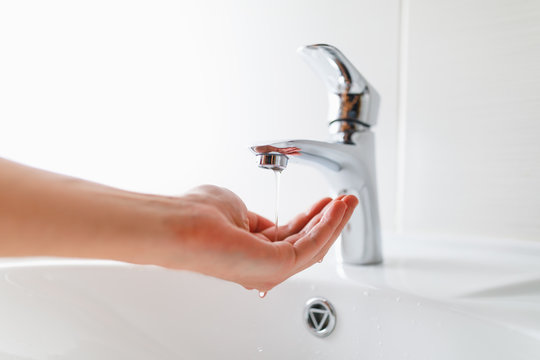
If you’re dealing with low water pressure, you’re likely wondering what causes low water pressure and how to fix it. Water pressure is essential for everyday tasks like showering, washing dishes, and cleaning. When water pressure drops, these tasks become more difficult, and it can indicate an underlying plumbing issue. In this post, we’ll explore the common causes of low water pressure and provide helpful solutions to restore your plumbing system’s performance.
Common Causes of Low Water Pressure
Before you start troubleshooting, it’s important to understand the different factors that could be contributing to low water pressure. Here are some of the most common causes:
- Clogged Pipes
Over time, debris, minerals, and rust can build up inside your pipes, leading to blockages that restrict water flow. This is especially common in older homes with galvanized steel pipes, which are more prone to corrosion and buildup. - Faulty Pressure Regulator
A pressure regulator controls the flow of water into your home and helps maintain consistent water pressure. If this device malfunctions, it can cause your water pressure to drop significantly. - Leaky Pipes
Leaks in your plumbing system can result in a loss of water pressure. Even a small leak can cause a noticeable drop in pressure, especially if it’s located in a hidden part of your home, such as behind walls or underground. - Municipal Water Supply Issues
Sometimes the issue lies outside of your home. If your water utility is experiencing problems, such as low pressure or maintenance work, it can affect your water flow. You may notice low water pressure during certain times of the day or after storms. - Water Meter Issues
If your water meter is damaged or malfunctioning, it could lead to inaccurate water readings and lower pressure. In such cases, the problem may require a professional plumber to investigate and resolve.
How to Fix Low Water Pressure
Once you’ve identified the cause of your low water pressure, you can take steps to fix the issue. Here are some solutions to common problems:
- Clean or Replace Clogged Pipes
If you suspect your pipes are clogged with minerals or rust, it may be time to clean or replace them. This is especially important if you have older pipes that are corroded. A professional plumber can perform a pipe inspection to assess the condition and recommend the best course of action. - Adjust or Replace the Pressure Regulator
If your pressure regulator is faulty, it will need to be repaired or replaced. Adjusting the regulator can sometimes restore the pressure, but if it’s damaged, it may need to be replaced entirely. - Fix Leaky Pipes
Leaks are a common culprit of low water pressure. If you notice wet spots on your walls or ceilings, or if you hear the sound of running water when no taps are on, it could be an indication of a hidden leak. Have a plumber perform a leak detection service to pinpoint the problem and fix it promptly. - Contact Your Water Utility Provider
If the issue is outside of your home, it’s best to contact your water utility provider. They can inform you of any ongoing maintenance, water restrictions, or issues that could be causing low pressure. Sometimes, the solution is as simple as waiting for repairs to be completed. - Install a Water Pressure Booster
In cases where the water pressure is consistently low, installing a water pressure booster pump can help. This device increases water flow into your home, improving water pressure for your faucets, showerheads, and appliances.
When to Call a Professional Plumber
If you’ve tried the above methods and still have low water pressure, or if you’re not sure how to diagnose the issue, it’s time to call a professional plumber. A licensed plumber can:
- Perform a thorough inspection of your pipes and plumbing system.
- Identify hidden leaks or blockages.
- Check the condition of your pressure regulator and water meter.
- Recommend and implement the best solution to restore proper water pressure.
At Professional Plumbing Services, we specialize in diagnosing and fixing low water pressure issues. Our expert plumbers can quickly identify the cause of the problem and offer effective solutions to get your water pressure back to normal.
Why Choose Professional Plumbing Services?
At Professional Plumbing Services, we provide expert plumbing services, including low water pressure repairs, leak detection, and pipe cleaning. Our team is equipped with the latest tools and techniques to address any plumbing issue, big or small. Whether you’re dealing with clogged pipes, faulty pressure regulators, or hidden leaks, we have the experience and skills to get your plumbing system working efficiently again.
Conclusion: Fixing Low Water Pressure
Low water pressure is a frustrating issue, but it’s usually fixable with the right approach. By understanding the common causes of low water pressure and taking the appropriate steps, you can restore normal water flow and avoid further plumbing problems. If you’re unsure of the cause or need professional assistance, don’t hesitate to contact Professional Plumbing Services. Our experienced plumbers are here to help.
For expert plumbing services, including low water pressure fixes, visit www.professionalplumbingservices.com.
